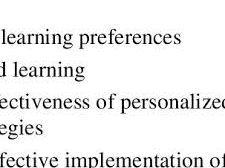In today’s fast-paced digital world, effective communication is the key to building strong customer relationships. Intercom, a leading customer messaging platform, has revolutionized the way businesses interact with their customers. However, when it comes to choosing the right Intercom pricing plan, it can be a daunting task. In this blog, we will dive into the different pricing options offered by Intercom and help you understand which plan might suit your business needs the best.
- Intercom’s Pricing Tiers: Intercom offers three primary pricing tiers: Start, Grow, and Scale. Each tier is designed to cater to businesses of varying sizes and needs. Let’s take a closer look at what each plan offers:
- Start: This plan is ideal for small businesses and startups. It includes basic features such as live chat, email marketing campaigns, and limited automation capabilities. Start plan pricing starts at an affordable rate, making it a budget-friendly option for businesses in their early stages.
- Grow: The Grow plan is targeted towards businesses experiencing growth and looking for advanced features. It offers additional features like custom bots, advanced segmentation, and A/B testing. The pricing for the Grow plan is higher than the Start plan but offers more value for businesses with expanding customer bases.
- Scale: The Scale plan is designed for large enterprises and businesses with complex communication needs. It provides advanced features like role-based permissions, priority support, and dedicated onboarding. While the Scale plan comes with a higher price tag, it offers the most comprehensive set of features and support to accommodate businesses at scale.
- Additional Considerations: When deciding on the right Intercom pricing plan, it’s essential to consider a few factors specific to your business:
- User Volume: Intercom’s pricing structure often relies on the number of users or active customers. Assess your current user base and estimate its growth trajectory to determine the plan that can accommodate your future needs.
- Feature Requirements: Evaluate the features you require for your business operations. Consider the level of automation, customization, and integrations you need to deliver a seamless customer experience.
- Support and Service Level: Depending on your business’s size and criticality, the level of support and service provided by Intercom might be a crucial factor. Ensure that the chosen plan aligns with your support expectations and the resources available to you.
- Custom Pricing: While Intercom’s pricing tiers provide a general structure, it’s worth noting that they also offer custom pricing for businesses with unique requirements. If your business has specific needs that don’t fit neatly into the predefined plans, Intercom allows you to reach out and discuss a tailored pricing arrangement.



